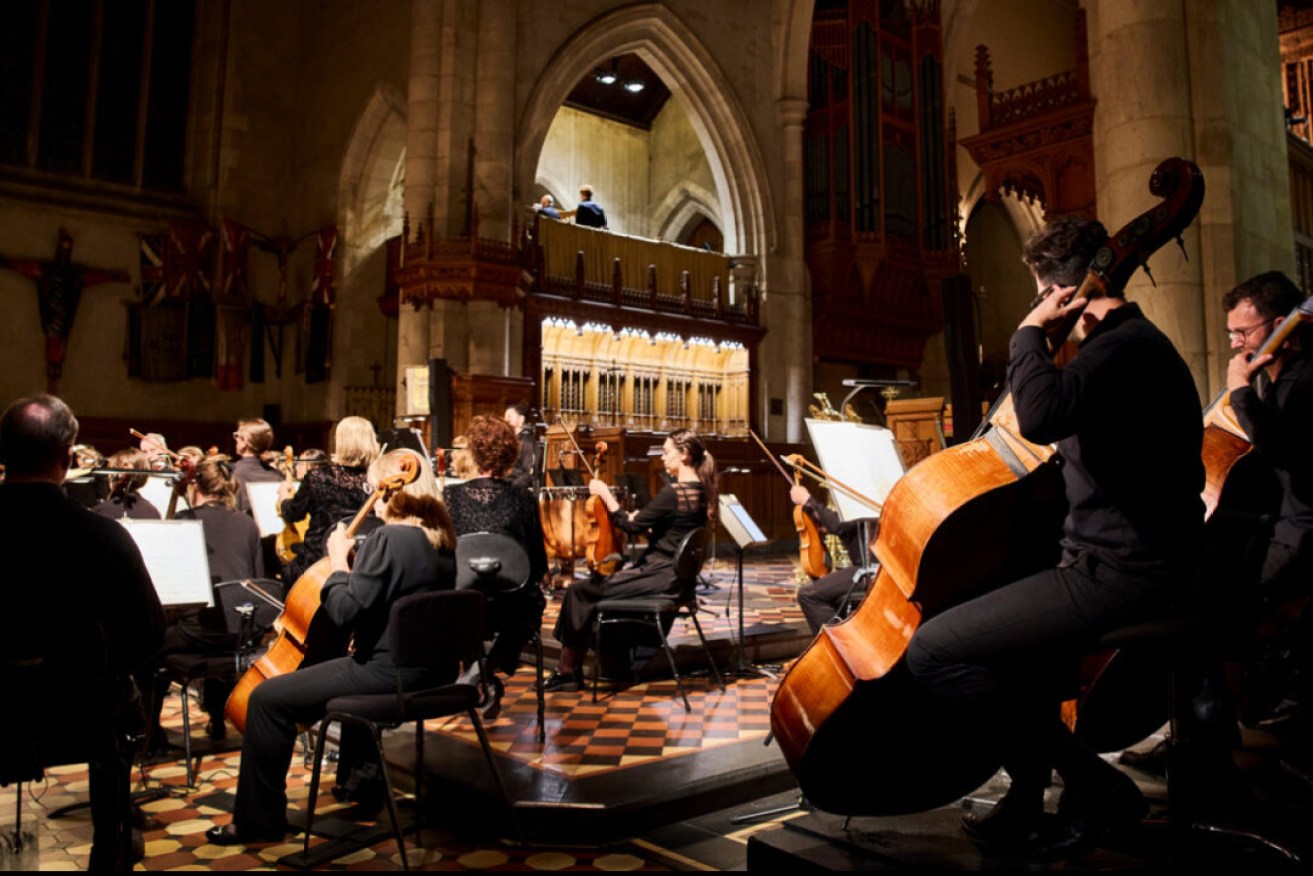Music review: ASO’s Glory
The ASO’s cathedral series could not have come a better time, and particularly this one called ‘Glory’. With conflict and tensions around the world, those seeking a moment of sanctity were amply rewarded.


'Glory' was part of the ASO's 'Sacred and Profane' series at St Peter's Cathedral. Photo: Claudia Raschella / supplied
Essentially, the ‘Sacred & Profane’ series is Anthony Hunt’s contribution to the ASO’s offerings this year – Hunt being the multi-talented music director at both St Peter’s Cathedral and State Opera SA.
With the emphasis actually more on the sacred and less on the profane, these concerts have already given us Vaughan Williams’ Fantasia on a theme by Thomas Tallis in April. This time, it included the cathedral’s in-house choir in Fauré’s Requiem.
‘Profane’ works, if we must call them that (‘spiritually attuned’ might be better), consisted of J.S. Bach’s Violin Concerto in E, BWV 1042, as well as a new work by Jakub Jankowski, the orchestra’s emerging composer in association. With the evocative title Clairières, meaning glades or clearing, it came first.
Jankowski is known and admired for writing intellectually grippy music. Different each time, his works are responsive to occasion, and Clairières is different again in its nature-orientation. Long suspended notes initiated by harp and followed through on violins immediately hold one’s imagination. Breathy noises from the woodwinds sound like a distant murmur of insects, and scraping effects on the stringed instruments echo like frogs. A rumbling of bass drum here and there suggests distant thunder. Glistening chords rise up, organ-like, as if giving voice to the laws of nature. It is a most successful and memorable work.
By contrast, Bach’s second violin concerto shows the Baroque master at his most bracing. Straightaway one was impressed by the smart, direct playing of soloist Cameron Hill, the ASO’s associate concertmaster. Hunt set the tempos just right to give this work requisite energy and allow Hill to dance over his instrument with verve and agility. Clearly, both these musicians have their ears wide open to Baroque interpretative style, and their efforts were enhanced by neat orchestral playing and adroit continuo work from Andrew Georg on harpsichord.
Throughout this concerto, Hill played with real spirit, and his ornamentation was a delight. He totally gets Bach. The meditative stillness of its second movement and the joyousness of its finale were all there. In the hallowed space of a cathedral, one can’t help yearn for a few answers to the world’s problems, and answers there were. The world’s leaders should listen to this music.
Looking through the concert program showed that Fauré’s Requiem was to be performed in a version edited by John Rutter. Any fear that this might be a sweetened-up variant of an already sweet composition were totally unfounded. Rutter, otherwise known for composing numerous popular choral pieces of the lighter kind, has done a laudable job of returning this work to its original form – that is, shedding its later symphonic accretions and presenting it in its earliest chorally-focused conception.
This alone made it fascinating to hear, but we had in addition to that a most tasteful performance thanks to Hunt and his choir as well as two wonderful soloists in Jessica Dean and Pelham Andrews, plus a drastically scaled-back ASO. The other interesting thing was hearing smaller ‘choir organ’ accompaniment – ably played by Peter Kelsall – rather than the cathedral organ blazing away with full stops. The result was gentle and intimate, a wholly different experience.
Quite what prompted Fauré to write his Mass for the Dead has stumped scholars. The composer categorically ruled out suggestions that it was occasioned by the death of his parents in the years immediately prior. There being a generally placid and very melodic character about this work, it seems likely that he was solely searching inwards to find a place of peaceful rest and reflection.
This performance suggested as much, and again it was just what the world seems to need right now. A pall of darkness fell on the opening ‘Kyrie’, but the ‘Pie Jesu’, ‘Agnus Dei’ and final ‘In Paradisum’ were untouchably pure and tender of heart.
Being perched on the cathedral pews for 90 minutes is a bit of a drawback, but these concerts have been a thorough success. It’s good to see them continuing next year.
ASO Glory was at St Peter’s Cathedral last night (October 26) and will be repeated tonight (October 27).
This article is republished from InReview under a Creative Commons licence. Read the original article.
InReview is an open access, non-profit arts and culture journalism project. Readers can support our work with a donation. Subscribe to InReview’s free weekly newsletter here.
![]()




